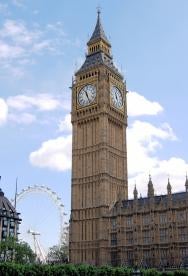As MPs debate the Trade Union Bill (see summary), the issue for employers is whether the Bill is political or practical and whether the tightening of the rules on picketing will actually backfire, resulting in unions using more unorthodox methods to achieve their objectives.
The Bill has come in for a lot of criticism from many different quarters. In August, the independent Regulatory Policy Committee gave the provisions designed to tackle intimidation of non-striking workers a ‘Not Fit for Purpose’ rating which is the political equivalent of ‘Must try harder’ on a school report but rather more (a) serious and (b) depressing when you bear in mind that this is the product of extensive Government consideration and relates to the economic health of a nation, not 3rd Year Latin.
In a recent joint statement Liberty, Amnesty International and the British Institute of Human Rights joined with others across the political spectrum (including Vince Cable) in accusing the Government of putting more legal hurdles in the way of unions organising strike action and so undermining workers’ ability to strike to protect jobs and livelihoods. Particular concern was expressed over the Governments proposals in relation to picketing and specifically the provisions intended to protect non-striking workers, which are not as yet actually in the Bill but were the subject of a recently closed (and very short) consultation process.
The Bill will make legally enforceable part of the 1992 Code of Practice on Picketing even though the Code has been operating reasonably successfully for the past 23 years without being legally enforceable. It will require unions to appoint a Picket Supervisor who will wear an armband and show a letter of authorisation on request to the police or anyone else who reasonably asks to see it. That provision, whilst probably not an attractive role for a trade union official, is hardly contentious and enables both employers and the police (and indeed other pickets) to know who to talk to if there is an issue with a picket line. Nonetheless, BBC News Online reports that Paul Kenny, General Secretary of the GMB Union, has indicated that he would be “prepared to go to prison” if the measure (and its associated fines for non-compliance) becomes law. This all seems a little extreme for the sake of an armband. It is not the only faintly histrionic reaction to the Bill, however – the TUC General Secretary says that it threatens “the very principle of the right to strike”, which it clearly doesn’t.
As the consultation document points out, industrial disputes are increasingly delivered through methods which go well beyond the traditional picket – so called ‘leverage’ tactics which often include internet campaigns to get shareholders, customers and suppliers to put pressure on the employer to accept the union demands.
A key question in the consultation document was whether unions should be required to publish their picketing and protest plans 14 days in advance of the industrial action. The plans should include whether the union is planning a picket, if so where and how many people it will involve and whether there will be a loud speaker, props and banners, etc. More significantly in this digital age, it could also include whether the union will be using social media and what those blogs and websites will say. The plan would then be provided to the employer, the police and the Certification Officer – and failure to do so could result in a fine.
It’s clear to see the problems for unions in the Government’s proposals. The issue for employers are that when these measures are combined with the new more stringent provisions on ballot thresholds, unions may just not bother with a ballot but adopt leverage tactics instead. If there is no ballot, the union can email, blog and tweet to its (lawful) heart’s content without having to tell anyone in advance what it is planning to do or say. The TUC General Secretary recently told BBC Radio 4 in faintly ominous terms that “Acas has certainly pointed out the danger that if you suppress that right for people who feel they are being treated unfairly at work to democratically take strike action, then people will find other ways to express that discontent”.
At least with the ballots and the Code of Practice employers had a reasonable idea of where they stood and what the rules of the ‘game’ were; leverage tactics and those “other ways” are far more unpredictable and potentially more damaging to a company’s business interests. But that is not the Government’s problem – it will be able to say that it took steps to limit the number of strikes, especially in transport and other key public services, and anything else is just noise. Whether so narrow a focus pays sufficient attention to the broader contexts of UK industrial relations remains to be seen.



 i
i


